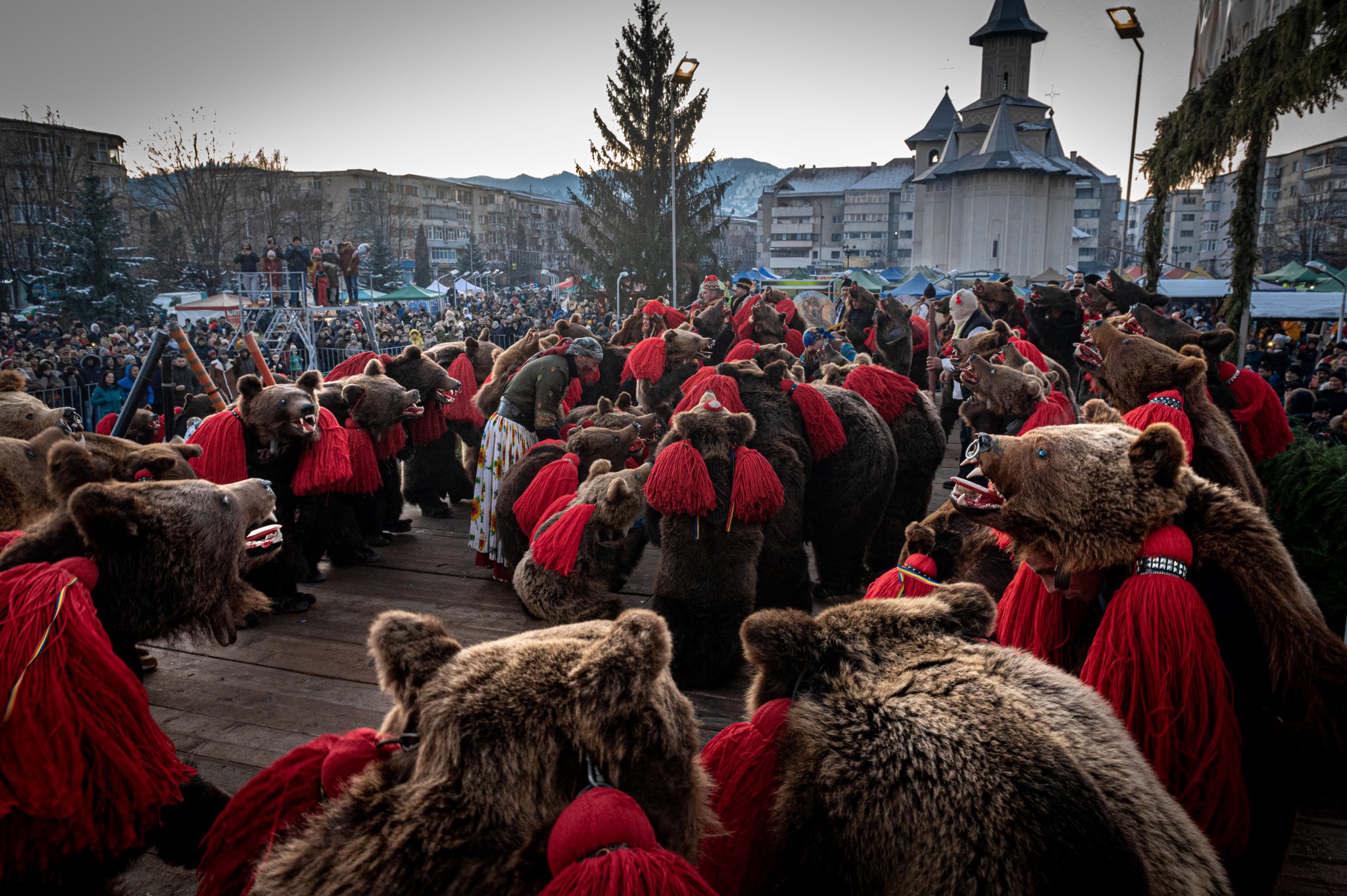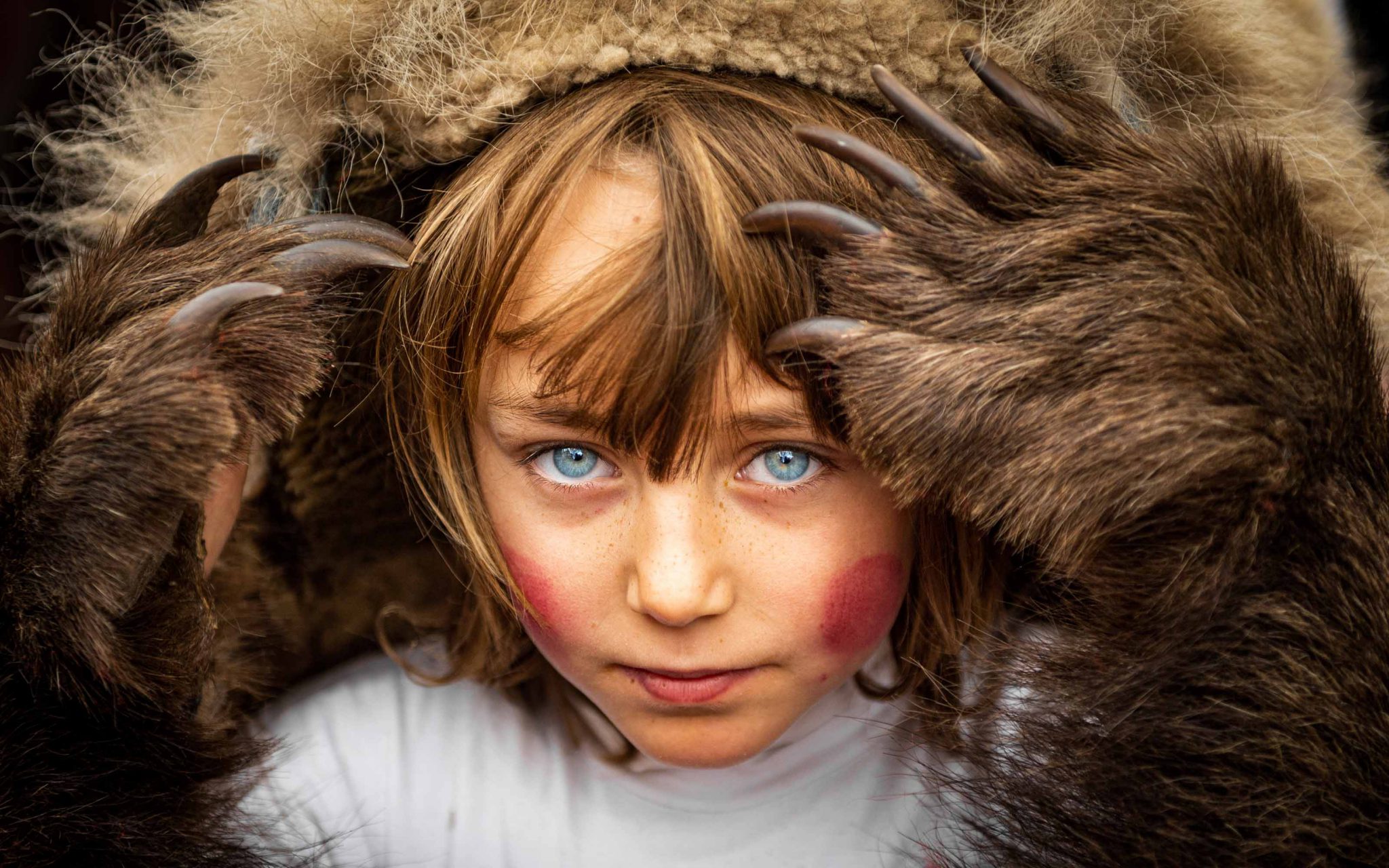

Even young children, such as this blue-eyed girl join the dance, despite there weight of the pelts - up to 50kg.
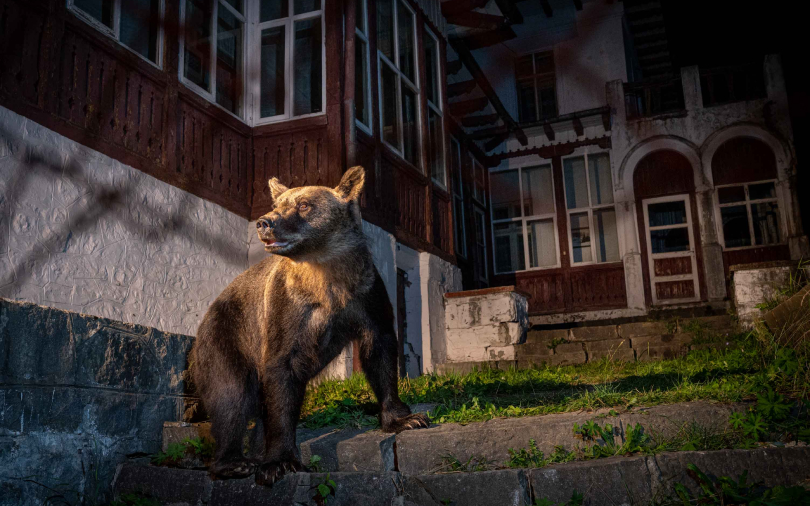

This old male sneaks through a broken fence in search of food. While their habitat shrinks, bears are forced to search elsewhere, and our waste provides a reliable source of food. To maintain their health, bears need about 10 kg of food per day.
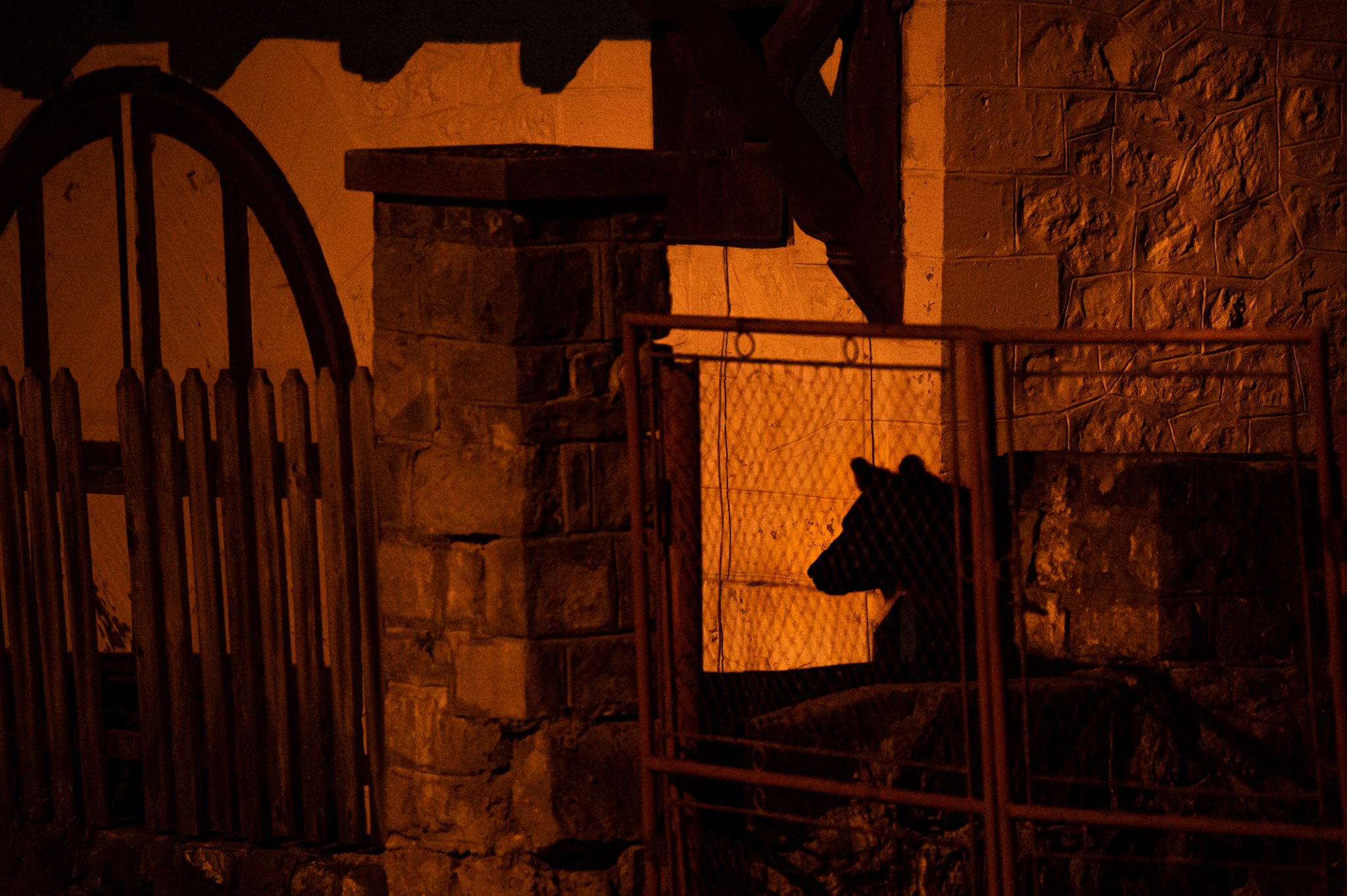

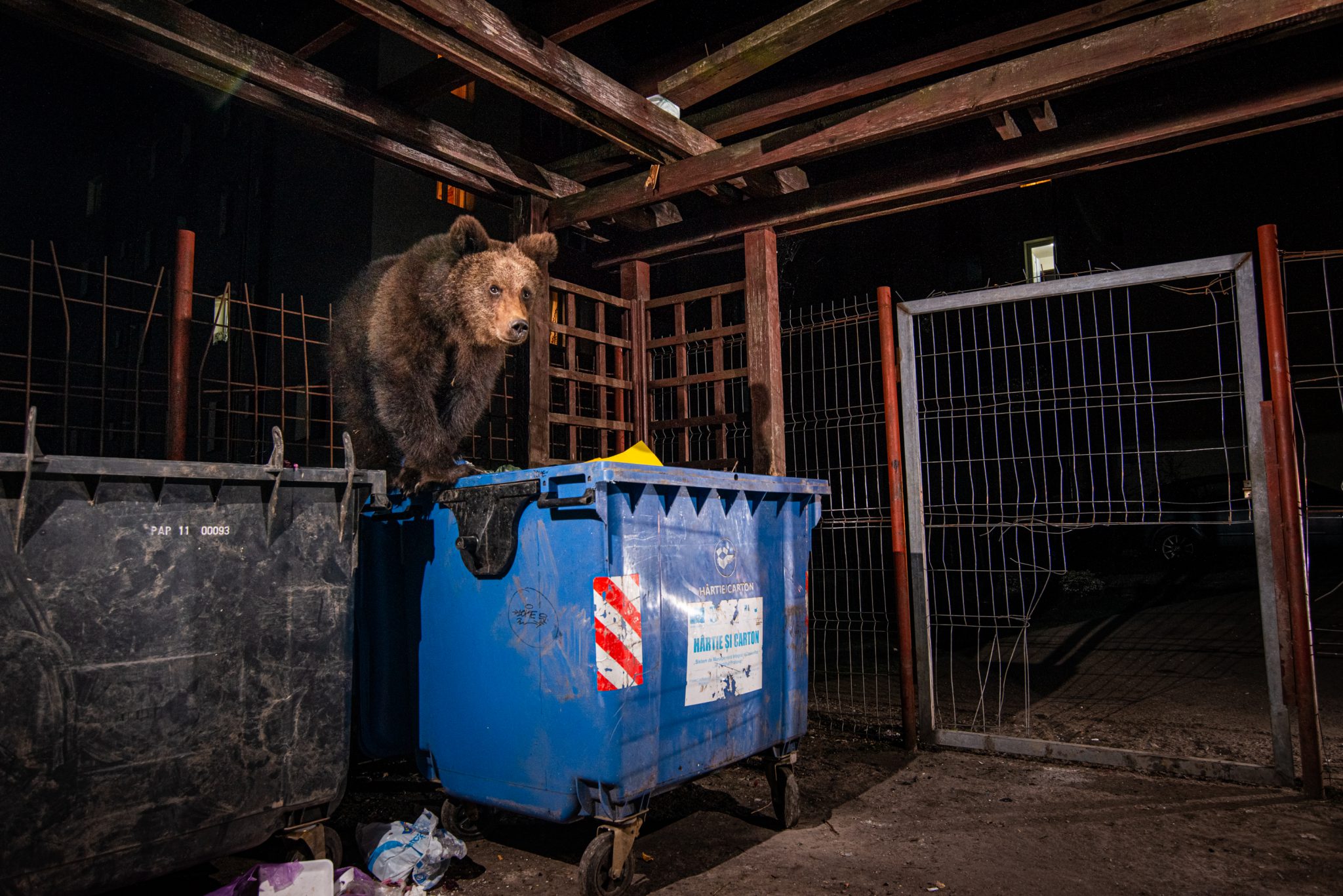

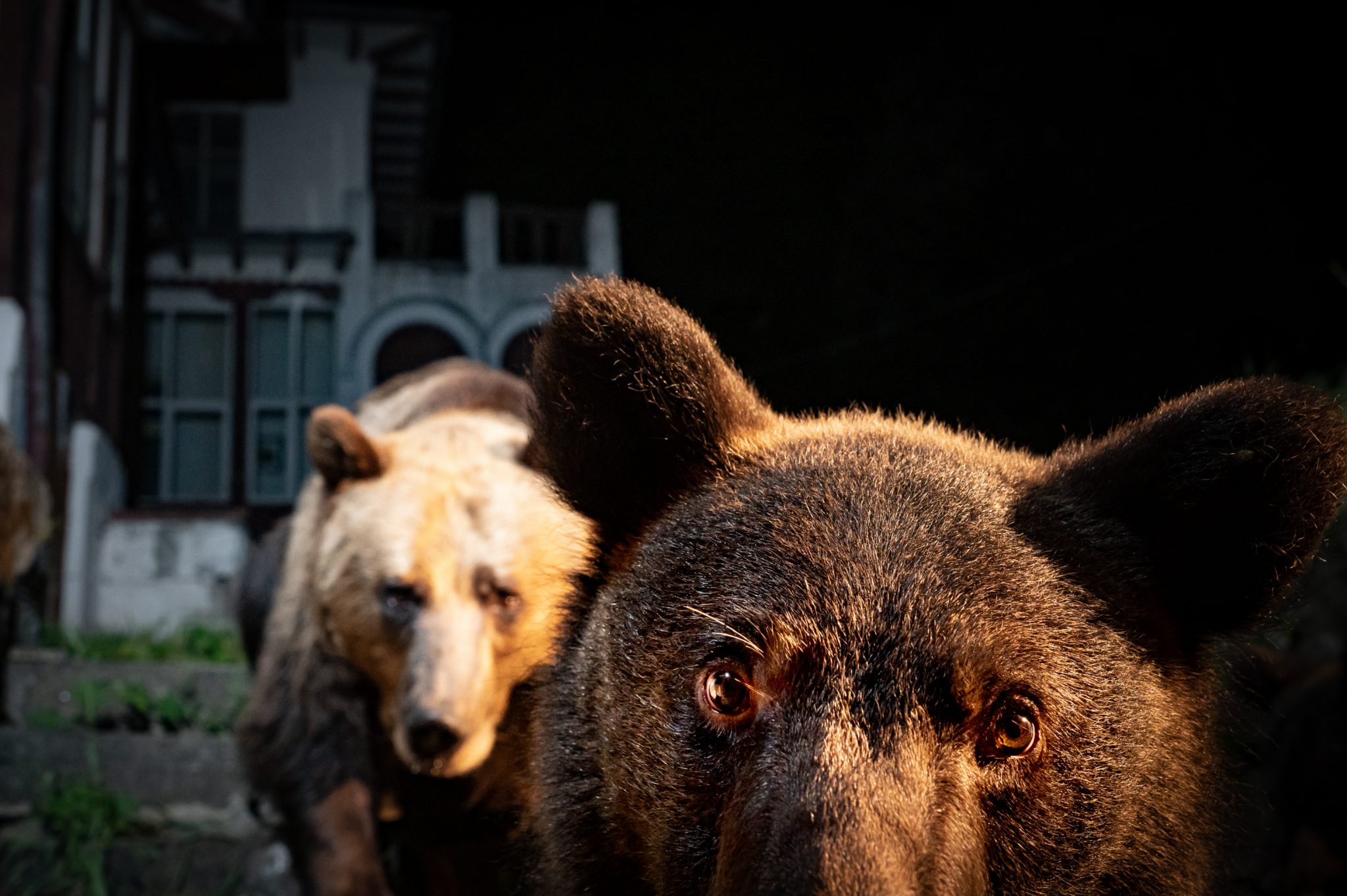

However, the mother bear is always nearby, keeping a watchful eye on her cubs and ready to intervene if necessary. Bears are known for their protective nature when it comes to their cubs.
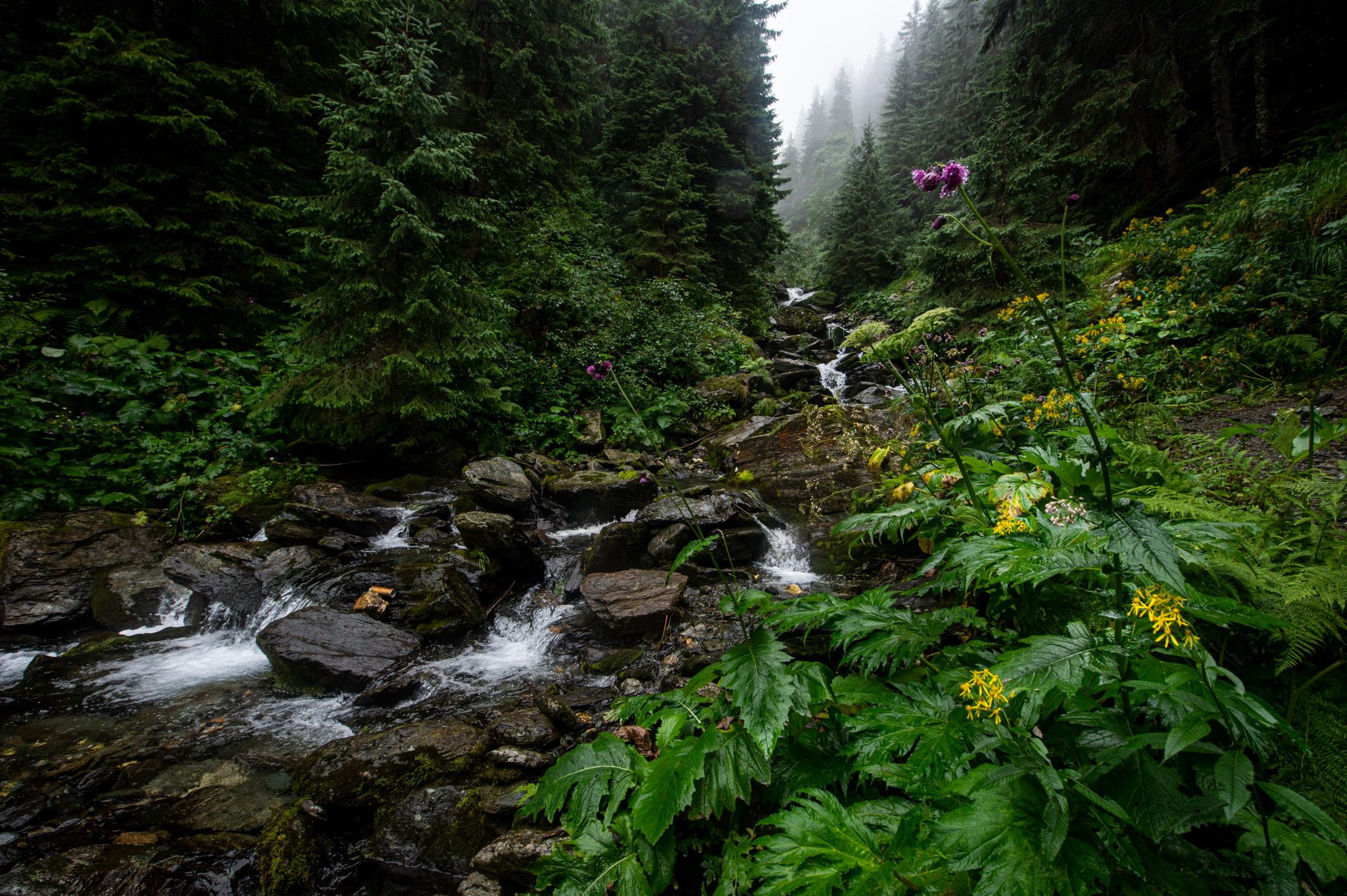

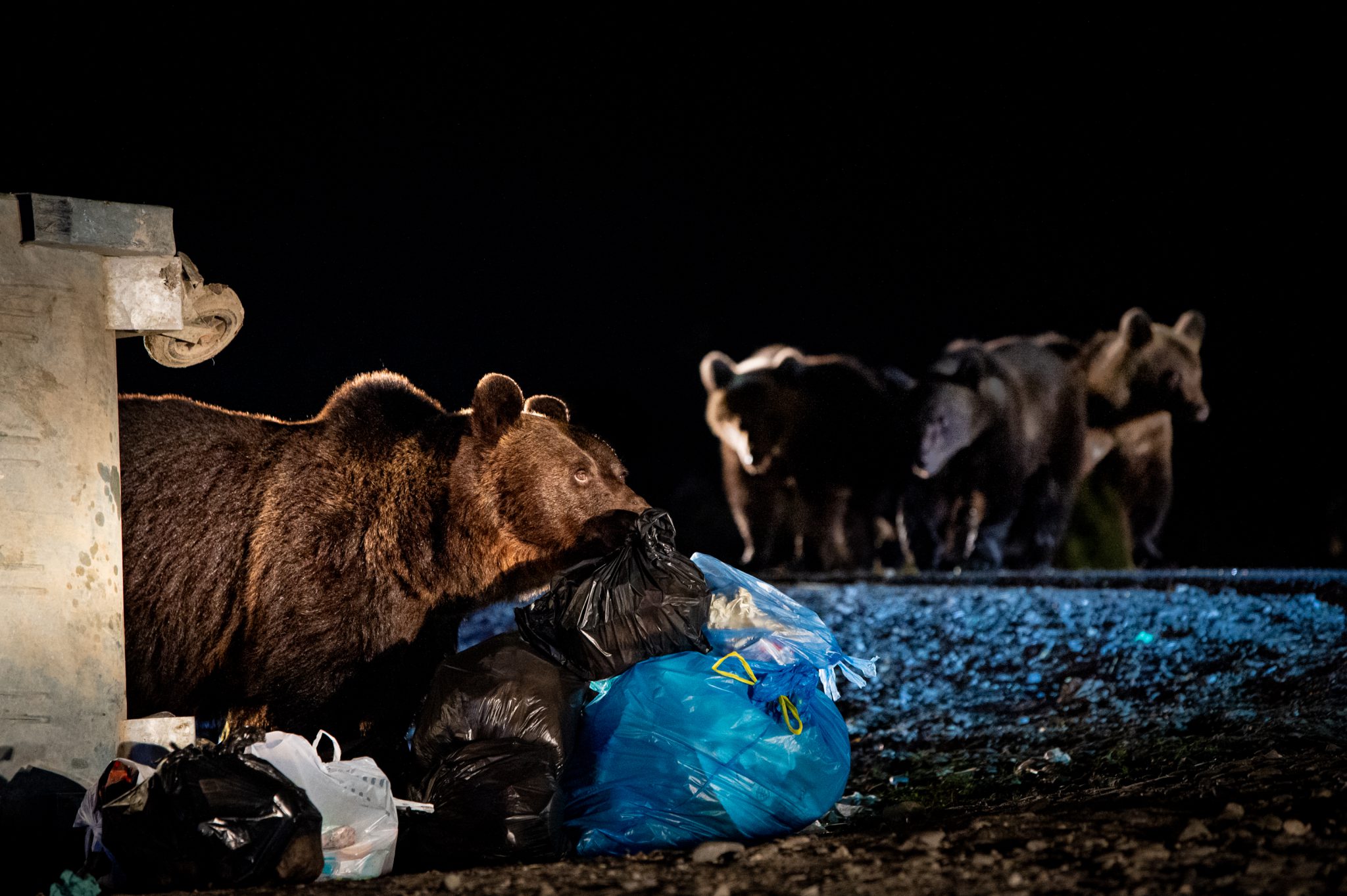

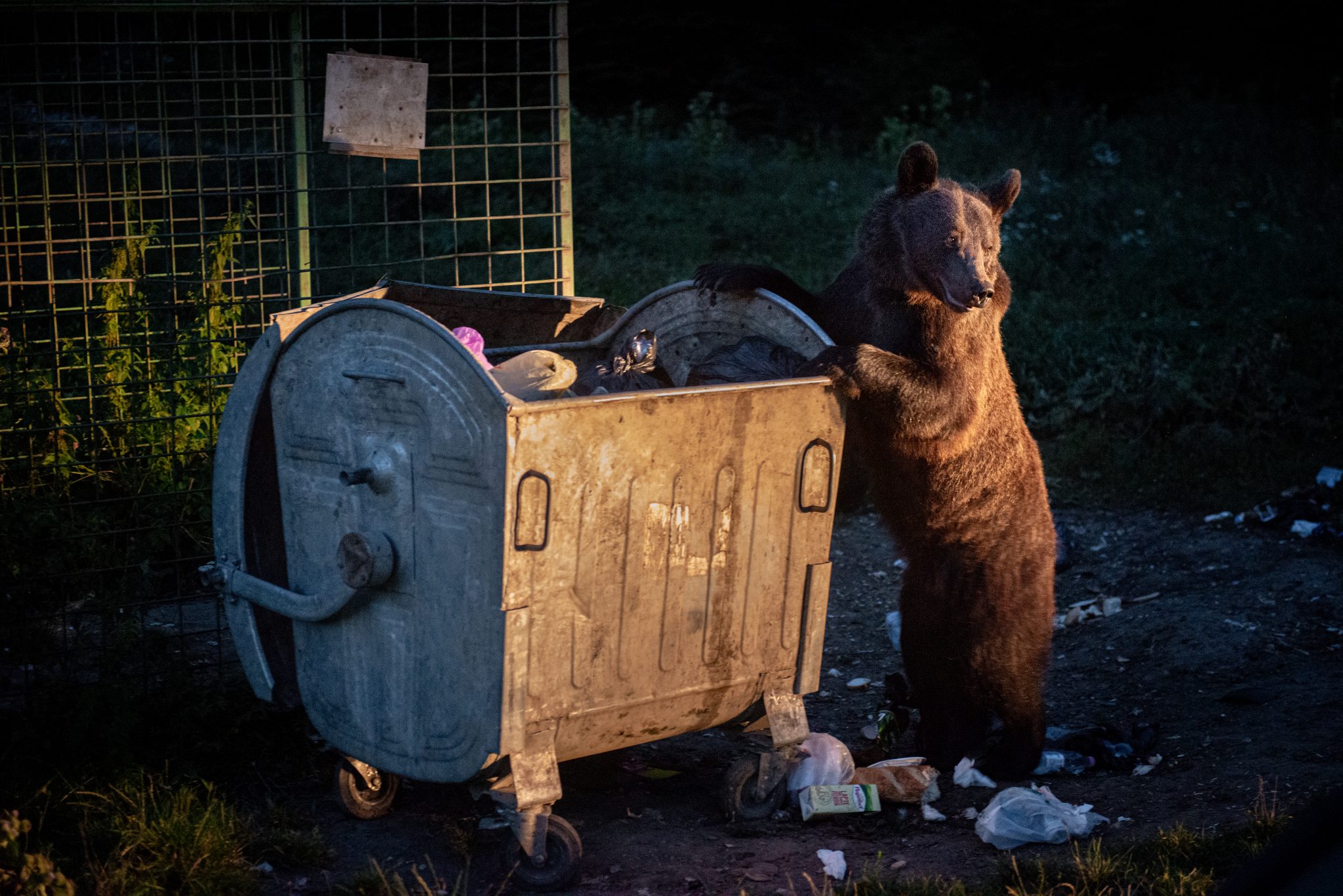

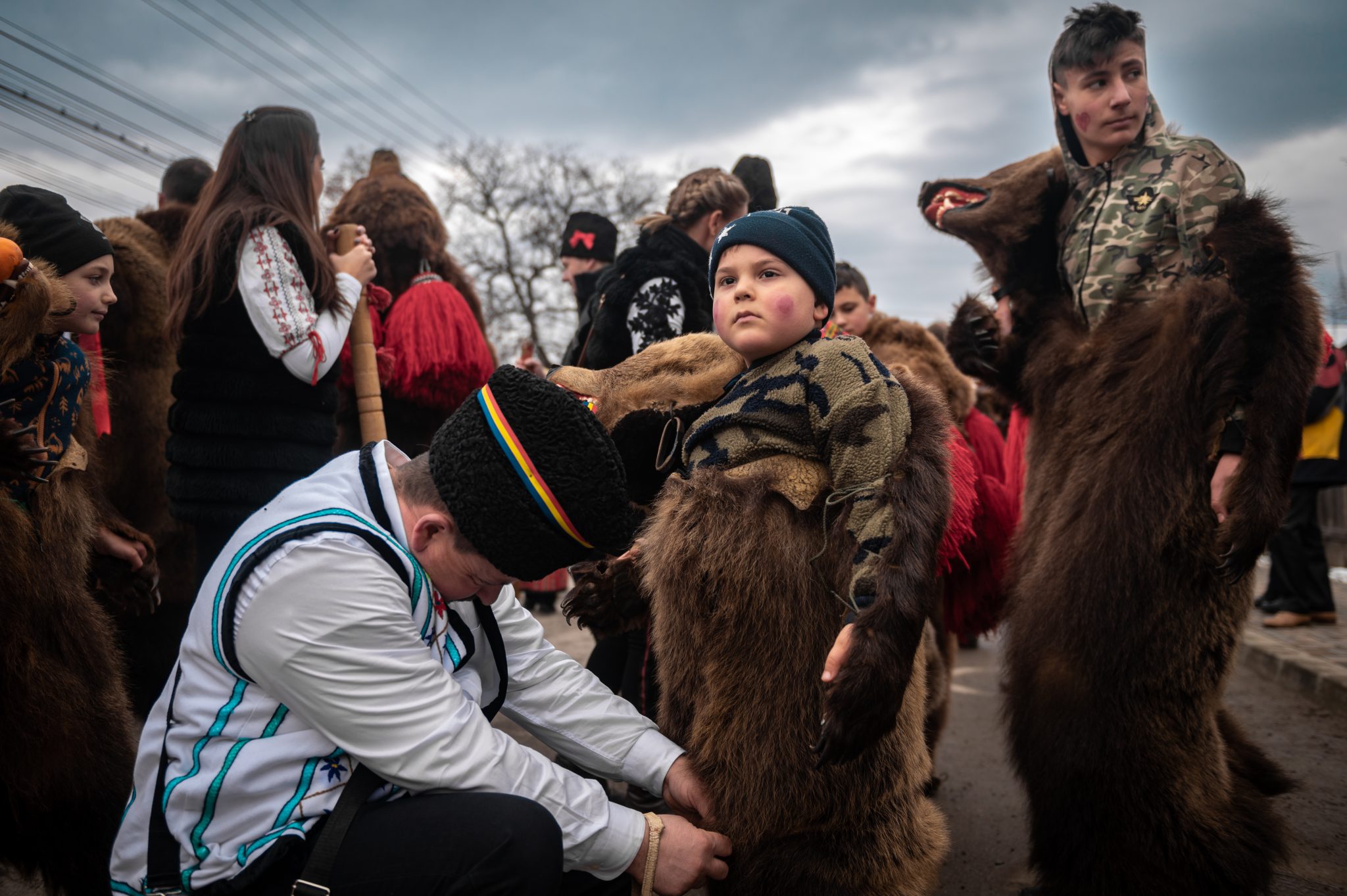

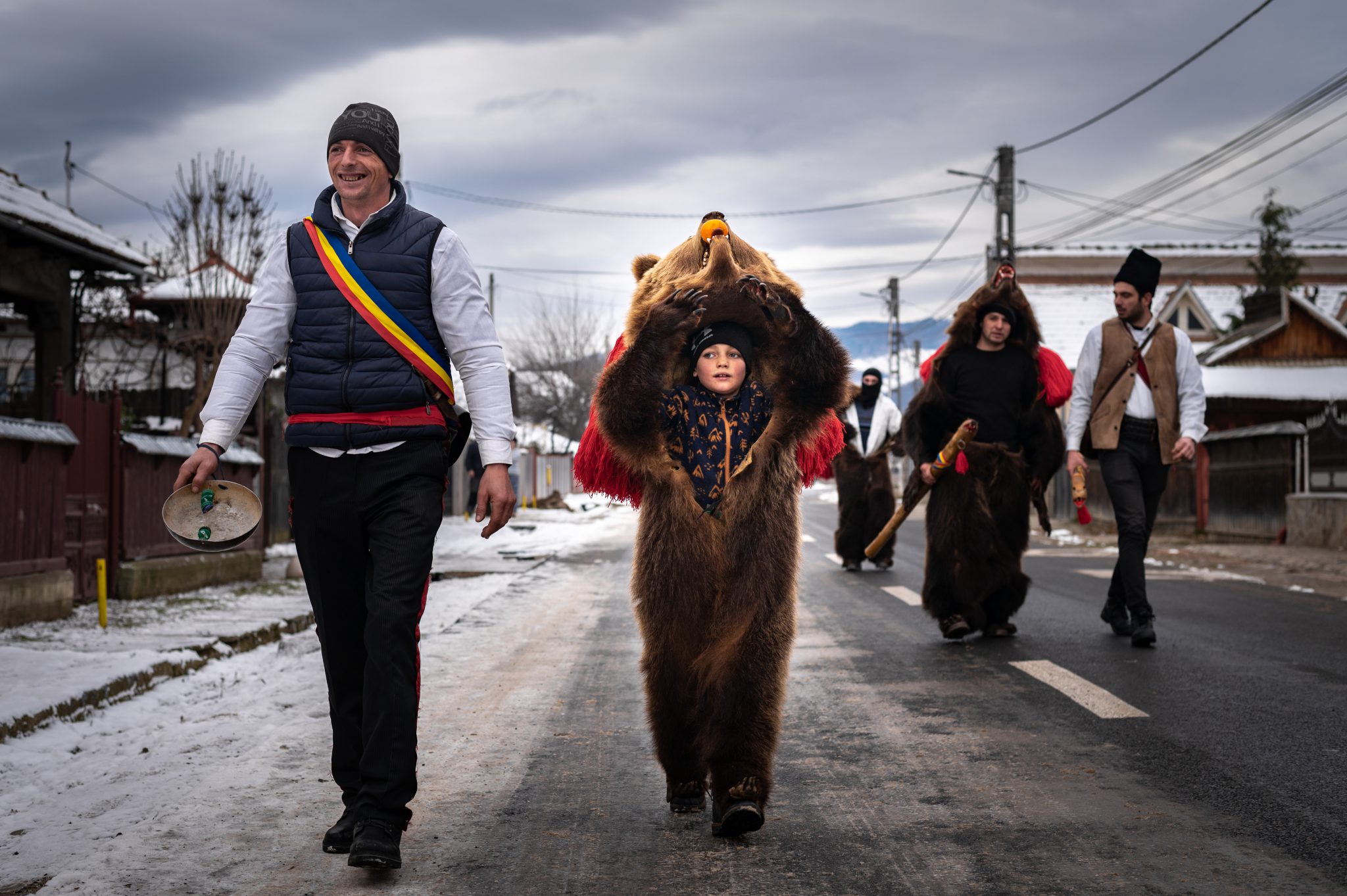

The participants of the winter traditions go from door to door collecting money as they make their way to the festival. The money collected is used to cover the high expenses of renting bear pelts. This community participation is vital in keeping the festival alive as everyone works together to ensure it's continuation.
